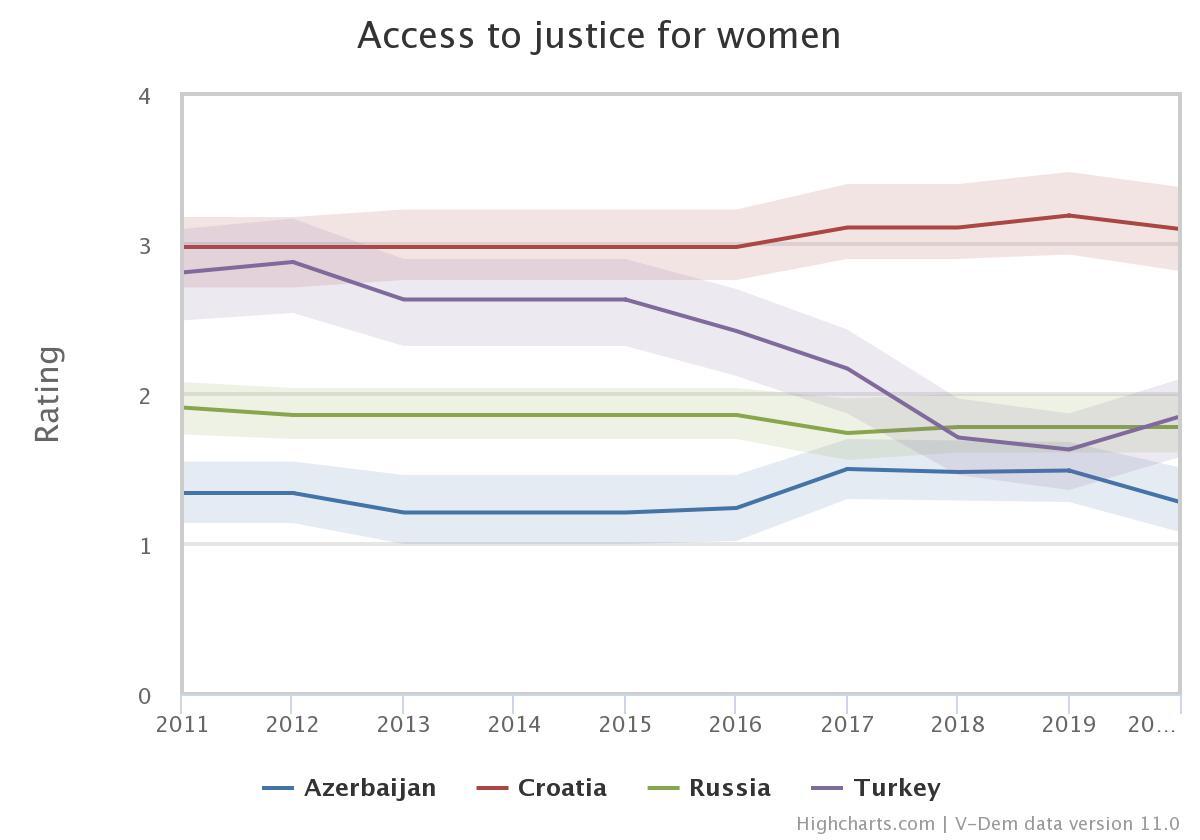The Istanbul Convention and Access to Justice for Women
By: Rebekka Ravn Lange-Nielsen
May 18, 2021
On March 20, Turkey announced its withdrawal from the Istanbul Convention, despite being the first country to sign the treaty. The convention aims to prevent violence against women and to end legal impunity for perpetrators. The Weekly Graph on “Access to Justice for Women” shows that women’s rights and protection have been a declining priority in Turkey over the last decade, with the withdrawal being the latest in a series of setbacks on women's rights.
This year marks the 10th anniversary of the Istanbul Convention put forward by the Council of Europe (COE). The treaty was opened for signature in Istanbul in May 2011, and 34 countries had acceded to the convention before Turkey announced its withdrawal. As thousands took to the streets of Istanbul to protest, Turkey’s Vice President praised the decision on social media. Given that violence against women, and especially domestic violence, has been on the rise following COVID-19 lockdown measures, the Istanbul Convention is as relevant today as ten years ago. Countries that signed the convention commit to the prevention of domestic violence, violence against women in general, to ensure victim protection, and to end the impunity of perpetrators. The convention has four ground pillars: prevention, protection, prosecution and co-ordinated policies.
We use V-Dem data to identify potential changes in countries that signed the convention versus those who participated in negotiations but refrained from signing. The V-Dem indicator on Access to Justice for Women explores to which degree women enjoy equal, secure, and effective access to justice and is measured on a scale from 0 (non-existent) to 4 (always observed). The graph shows the development in selected countries from 2011 to 2020.
While Turkey started out having similar scores as Croatia – both countries signed and ratified the treaty - it has steadily declined and is now in the company of Russia and Azerbaijan, which participated in the negotiations but refrained from signing.
In 2010, Azerbaijan adopted a law on the prevention of domestic violence. However, the law is not applied in practice, as state authorities often assess domestic violence as a “family matter.” A 2018 Human Rights Watch report on domestic violence in Russia found serious gaps in Russia’s laws, both in lack of protection and judicial responses. As in Azerbaijan, domestic violence is often seen as a private family matter. As a result, women suffering from domestic abuse are reluctant to turn to state authorities for help.
During 2020 alone, more than 300 women were murdered in Turkey, and the rate is increasing. Data from World Health Organization shows that 38% of women in Turkey experienced partner violence in their lifetime. When reviewing Turkey’s development over the last decade, their withdrawal does not come as a surprise but reflects negative developments over time.


